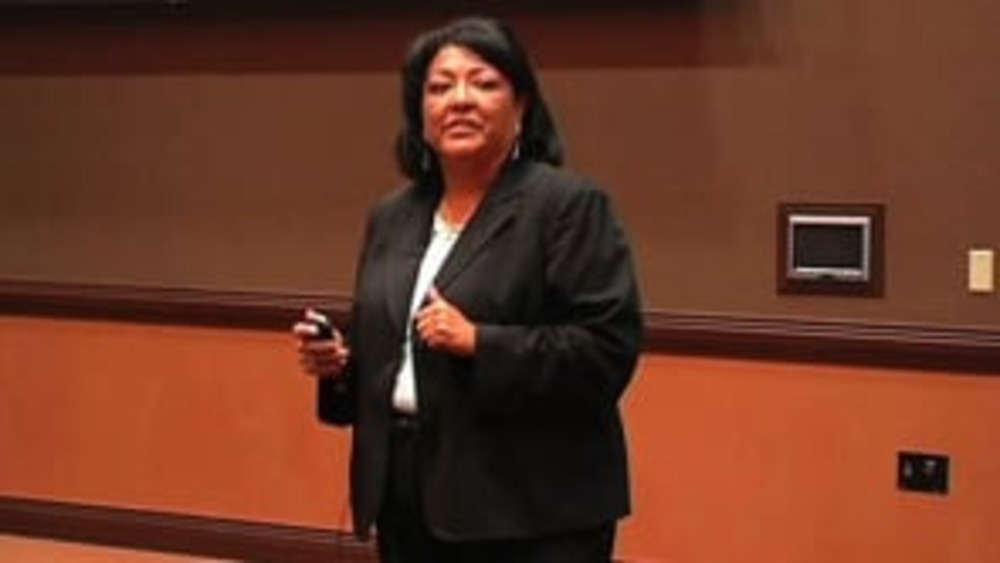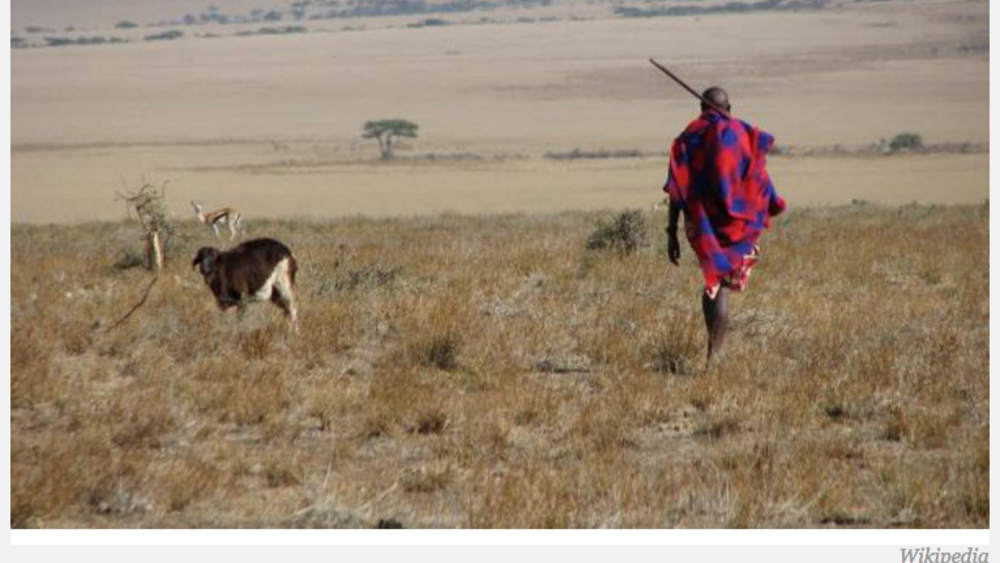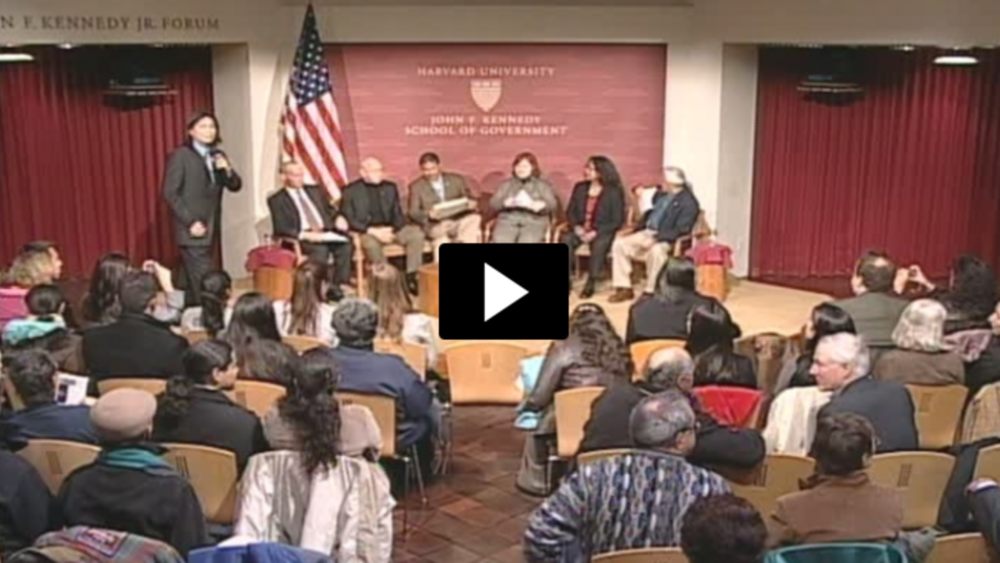Former U.S. Senate Committee on Indian Affairs Democratic Staff Director and Chief Counsel Patricia Zell share some effective strategies for educating and lobbying members of the U.S. Congress, based on her many years of experience working for the U.S. Senate on Committee on Indian Affairs.
Additional Information
Zell, Patricia. "Addressing Tough Governance Issues." Emerging Leaders seminar. Native Nations Institute for Leadership, Management, and Policy, University of Arizona. Tucson, Arizona. March 26, 2009. Presentation.
Transcript
"Your values, your traditions and your culture are the most important thing that you bring to your relationships throughout your lifetime. And those include the relationships that you will necessarily need to develop with people who influence your lives on a daily basis or on a weekly or yearly basis. Because we know that in the United States, there are really two groups of people who are more affected by what happens in Washington, D.C. and the decisions that are made at the federal level than anyone else. The first group would be those who serve in the Armed Forces of the United States and the second, and no less important group, are the Native people of America. Our lives as Native people are influenced and always have been -- so much more than our non-Indian neighbors -- by everything that happens in Washington and obviously, because of the long history of the Federal/Indian relationship. That what happens in the Congress, what happens in the executive branch -- whether it's the Bureau of Indian Affairs or the Indian Health Service or the numerous federal agencies that now have some role to play in Indian Country -- what they do impacts us, has impacted our parents and grandparents and indeed it will affect our children and grandchildren. And so we are more focused and need to be more focused on what people are doing in Washington and how well educated they are about who we are. And the only people, the best people that can provide them with that kind of education are those of you in this room, those of you who are tribal leaders in tribal government, and those of you who will follow in those footsteps as young people now and are here today learning. So important that you are learning now what you will need to know when you step into the shoes of those who've gone before you.
And one of the reasons that who you are as a person -- as President [Peterson] Zah has so beautifully articulated -- is important is that people will measure not only who you are as the leader or council member of your government representing a sovereign nation but -- fair or not -- they will be looking at you and everything that you do and particularly your mistakes -- if you make mistakes -- as reflective on everybody else in Indian Country, on every other tribal leader. The gentleman who preceded President Zah as leader of the Navajo Nation was a great hero in terms of his war record, in terms of how he was perceived, until he made a series of mistakes. And he became a nationwide emblem for a while of how people perceived tribal leadership in Indian Country. And just as Jack Abramoff in recent years, the lobbyist who took so much terrible advantage of the tribes with whom he worked and represented, not only in terms of their money, but talk about conflict of interest. He was working for tribes who were working against one another and who hired him to work against one another, not knowing that he represented both sides. And we've seen how the nation has reacted and particularly this new administration has reacted to that one man. Now the government, the new administration is taking steps very, very heavy steps to make sure that if there are any other rotten apples in this barrel, they won't have access and opportunity to do what he did. And you can see from that example, and from the earlier example of the former chairman of the Navajo Nation, that one person can – again, fair or not -- label all of us. And so it's very important that we each bring to our experiences our values and traditions and distinguish ourselves as honest people, as people who are led by and inspired by and adhere to a sense of ethics and values.
In my years in Washington, one of the questions that tribes most often asked of me as a government person was whether or not they needed to have lawyers, lobbyists, representation in Washington, D.C. Given the fact that obviously, tribal leaders, if they're going to be effective tribal leaders, have to spend an awful lot of time at home addressing problems at home, dealing with the needs of their citizens, particularly the young people, particularly the elderly. Today that question could be answered a little bit differently than I did then, but I would say that as a general proposition, you do not have to have representation on a daily basis in Washington. There are, with the advent of technology, so many ways that you can have direct access on a daily basis, on an hourly basis to what's going on that may affect your tribe, your reservation, your region or all of Indian Country for that matter. And you can do it through the internet, you can do it in so many ways that technology has so advanced the way in which Indian Country used to interact with members of Congress, for instance. Now you can go to websites -- whether it be the National Congress of American Indians, your regional organizations, other national Indian organizations -- and find out what's happening with education or health care, how the Congress is going to respond to the most recent U.S. Supreme Court ruling in the Carcieri case that involved the Narragansett Tribe; how you can take advantage of the hundreds of millions and indeed billions of dollars that have been recently authorized to be appropriated under the economic stimulus initiative, the American Reinvestment and Recovery Act. There are enormous opportunities out there in that one act for tribes, be they for grants and loans through various federal agencies or be they authorities that now enable tribal governments to issue bonds for economic development and renewable resources and clean energy and roads, maintenance of roads, and a whole array of activities that tribal governments are already engaged in but could be so much more effective with that many more resources. And most of that information is available online either through National Congress of American Indians or the agencies themselves. So there are many people in Washington right now who are working at the behest of tribes to make sure that that information gets out to Indian Country. And whether you have someone in Washington that does that for you or you learn about it and interact directly with the federal agencies there is not necessarily nor always a need to have representation in Washington.
On the other hand, there will be times when your tribe is particularly affected by something the Congress is doing, or something that the Interior Department is doing, or maybe it's the tribes in your region, and you will need representation in Washington. You can't be there every day. You cannot stay on top of things in a timely manner when things are moving very quickly in the Congress. And you have to kind of weigh how important these issues might be. Say for instance you're trying to secure the secretary's approval to take land into trust. That has become, at least under the last administration, a very cumbersome process. And if you have land that is not contiguous to your reservation and certainly not within reservation boundaries, then you've got a long, uphill battle. Hopefully that will change, but that kind of thing sometimes you cannot affect on your own without having people in Washington who are working all of the angles, meeting with all the members of Congress that are necessary to make that decision, meeting with people in the Interior Department who are necessary to sign off on that activity. So you have to weigh those things.
But I would echo what President Zah has said and yet put it in this arena, which is that those people that you want to retain -- because they have the expertise either in the subject matter or in the legislative process or in the administrative process -- you, I would respectfully suggest, would be wise to bring to bear your values, your traditions, your judgment about whether or not those people reflect your values. Because for all those times that you can't be in Washington or you elect not to be, they will be the face on your nation and you want to make sure that that person or group of people has the kind of integrity and respect that you would want to have conferred and have members of Congress feel about you. And so you don't, if you've built up a strong relationship with the members of your delegation, you don't want somebody to come in and be a big, bragging around or throwing their weight around, and doing something that's not consistent with the way in which you've been brought up and the image that you want to project. So I would say that even though people often are hired in Washington to do something discrete because they have expertise. There are a lot of people with expertise in Washington. And so it's important to go through say a filtering process and make sure that you pick the person not only that has expertise, but the one that you will feel good about representing you.
Another thing that I wanted to share in my experience is how important it is that you as tribal leaders and members of tribal councils, when you do come to Washington and when you do meet with members of Congress, with their staffs...and the staffs are very important, the staffs are the people that gets things done. Members of Congress meet with hundreds of people every week. They can't possibly do everything that everyone asks of them on their own. That's why there are staff people in place with expertise of their own that they've been retained to be part of a Senator or member of Congress's staff. And so never think that you're being shunted off to someone less important if you meet with staff because in fact, they are the ones who have a Senator's or member of Congress's ear and they're the ones that can take your issue forward. If you are seeking a meeting with a member of Congress, it's very important that you take into account the fact that they do have hundreds of requests for meetings every week. And so their schedules are built a month in advance. In other words, you cannot show up in Washington, call up Senator [John] McCain and expect to get a meeting the day you land or the next day or the day after that. His schedule's been in place -- and I'm only using him as an example -- has been scheduled for weeks in advance. So if you are seeking meetings in Washington, it's very important that you start as long as a month or three weeks ahead of time to seek a meeting to secure time on a member's schedule. The executive departments are a little less time constrained in that regard, so you may not require as much advance notice.
Now if you have a lobbyist or a lawyer or a group of people that represent you in Washington, when you do meet with a member of Congress, it's very important that you not have that person, that lawyer, that lobbyist, that group of people doing the talking. It's very important that you understand how important your role is as chairperson or president or council member of your tribe, because you are the people that are voting for the member of Congress, not the lobbyists that live in Washington. And a member of Congress cares about his or her constituents, first and foremost. He's going to be responsive to you. And he may think a little less of you if you ask for a meeting and then you all sit down and then you call upon your lawyer, your lobbyist and that person does all the talking. That sort of undercuts your position of who you are as the representative of the sovereign nation. There is nothing wrong with calling upon -- let's assume Steve [Cornell] was the lawyer -- to call upon Steve at the appointed time and say, 'Could you explain to Senator McCain what the details, how the law works in terms of how it affects our tribe.' There's nothing wrong with that at all, but you have to be the one that is the principle presence and the one that tells Steve when he can speak and tells Steve, 'Thank you very much. And now Senator McCain, it's time that we return to how this impacts our nation.'
For instance, the recent U.S. Supreme Court ruling in the Carcieri case, which the Supreme Court -- as you probably all know by now -- held that if you were not a tribe under federal jurisdiction on June 18, 1934, the day when the Indian Reorganization Act was passed, the government was without authority to take land into trust for you then, and ever since then, for the last 75 years. This ruling will impact some tribes in a very, very serious way and the Interior Department and the Justice Department are in the process of trying to assess how wide the impact is, how serious it is so that they can come before the Congress and seek, on behalf of Indian Country, legislation to address the Supreme Court's ruling and effectively overturn it or nullify it. Because as we know, the Indian Reorganization Act signaled a shift in federal policy that was intended to put the past behind and to usher in a new day. It was an invitation to tribal governments to reorganize under that act. There was no process on the day of the enactment of that act for tribes to take advantage of that reorganization. That process was yet to be put in place. So the notion that on the very day the law was enacted tribes were either under federal jurisdiction or not and that's the bright line. It flies in the face of the history of federal Indian relations and the manner in which laws that Congress enact take effect. They're meant to be prospective, they're meant to start a new day and the Supreme Court's ruling was very much looking at some other source of history and coming up with a very odd result.
The last things I want to say is that there are very many little nuts and bolts of relationships and things that take place in Washington and how you can impact decision-makers and make sure that they understand what they're doing and how it affects Indian Country and more specifically how it affects your tribe. It takes a lot of education. It takes educating. Every time a new member is elected to Congress that represents your state, fortunately or unfortunately, most of the time unfortunately, you have to start all over again to educate them. Ignorance of conditions in Indian Country is in my view the biggest enemy that tribes have to face. A broad brush has been painted by people who feel more comfortable saying, 'Well, everybody in Indian Country is thriving, they all have gaming, they're prospering. We as a federal government can stand back, we can step back, we can pull our funding back because Indian Country is doing just fine.' And we know that that's not the reality. That while gaming has proven to be a boon to some tribes, it certainly is not a panacea, it has not brought prosperity and wealth and all of those benefits that some tribes have experienced to every tribe, not by any measure. And that's just one message that members of Congress and federal decision-makers need to understand.
And most importantly, they need to understand that this is not the old days. This time is a time when Native people and Native Nations are empowered. Not empowered because the federal government gave them that power, but because they've seized the reigns of control and opportunity. And more often than not, tribal leaders know better how to do things, how to get things done than anybody at the Bureau of Indian Affairs. With all due respect to the Bureau of Indian Affairs, I think that the wisdom, the power and the ability of Indian Country far surpasses that which is contained in the federal agencies. So never forget that. You have enormous power. It's just there for you to exercise. And there are members of Congress, it's true, that need to be educated. But once you educate them, you have a means by which to create a partnership to accomplish anything that you need or want to do for your citizens, for your children and your grandchildren, and you have an opportunity to shape the future. Don't underestimate who you are and how much you bring to the table. And people, I'm quite sure you will see the reflection in their face and in their eyes of how much they respect you. Thank you."



